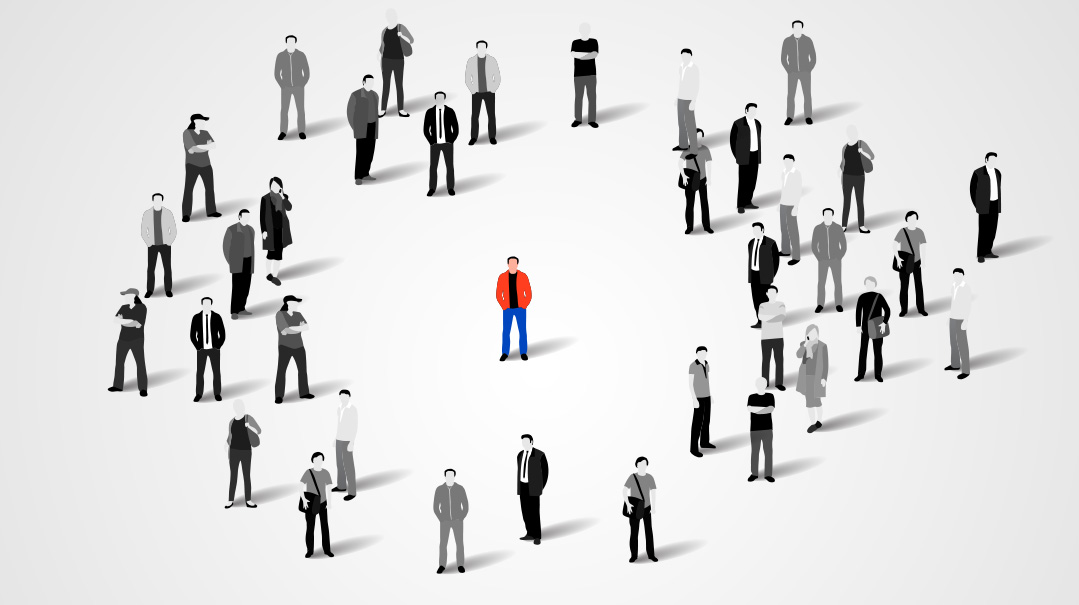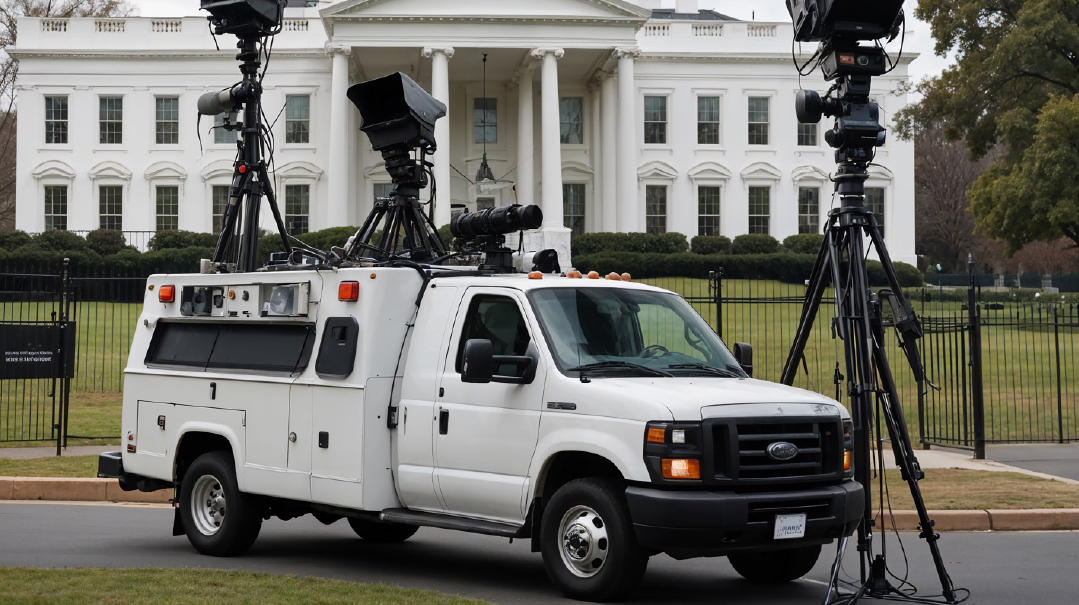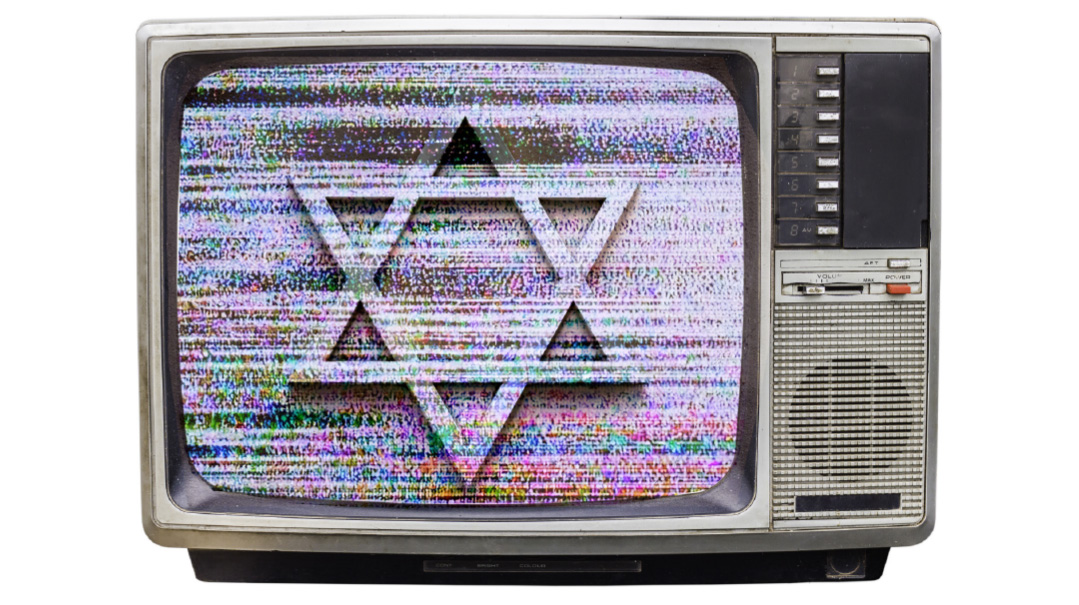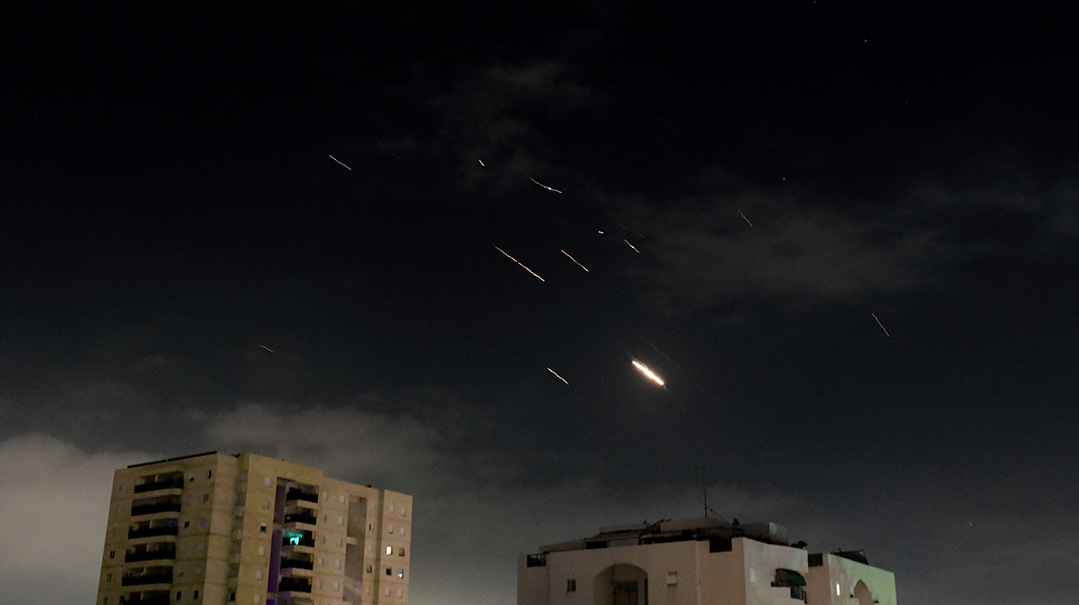The Lonely Liberal Jew

The cry of liberal Jewish pain rising from news reports since October 7 is so unsettling

You need a strong stomach to read a newspaper today. First, because the anti-Israel bile is so nauseating. Also, because the cry of liberal Jewish pain rising from news reports since October 7 is so unsettling.
It began almost immediately after Simchas Torah. Under the headline, “On Israel, Progressive Jews Feel Abandoned by Their Left-Wing Allies,” the New York Times reported on the widespread sense of betrayal among left-wing Jews. “I am in such a state of despair — in my generation, we have been warned how quickly people would turn on us and we just thought, no way,” the Times quoted Nick Melvoin, a local activist in Los Angeles who is running for Congress.
“In Atlanta,” the report continued, “a Jewish mother involved in local politics wrote an open letter lamenting that her child’s progressive private school had not addressed the attacks in Israel with the same kind of empathy it showed after local killings of Asian Americans. ‘Our people are butchered, and no one speaks to it?’ she wrote.”
That sense of Jewish isolation was global. On October 23, Politico ran a piece titled, “Anti-Israel Progressives Are Handing Liberal Jews an Impossible Decision.” In late November, the New Statesman — bible of the British left — wrote of how “the horrendous killing and abduction of Israeli civilians has placed many Jewish activists in unfamiliar territory.”
The sudden awareness of Jewish exposure flooded social media. It found particularly acute expression in the cri de coeur by Shai Davidai, an Israeli-American professor at Columbia University. Witnessing the terror of Jewish students as their professors and fellow students responded to the Hamas atrocities by celebrating the perpetrators, he stood in the middle of his own campus and literally screamed his fear.
“We cannot protect your children,” he warned Jewish parents of students at elite American universities, in a viral video. “It was a howl that took on the purest form of human pain, that arose from the darkest, deepest, and most primal of fears,” he wrote later.
So seismic is this sense of dislocation that Bret Stephens of the New York Times coined a term — “October 8 Jews” — for those newly aware that they were friendless on the progressive left. He wrote that “in my conversations with college students, rabbis, business leaders, Jewish professionals, and others, the sentence that everyone seems to circle around, spoken or unspoken, is, “We are alone.”
Perhaps the most chilling expression of that newfound sense of isolation came from Chuck Schumer, who, as Senate majority leader, has attained a higher office than any previous Jewish elected official.
“While the dead bodies of Jewish Israelis were still warm, people celebrated what happened,” he said in a speech from the Senate floor. “Many of the people who have expressed these sentiments aren’t neo-Nazis or Islamist extremists. They are people that most liberal Jewish Americans felt previously were their ideological fellow travelers.
“The long arc of Jewish history teaches us a lesson that is hard to forget,” he said, “Ultimately, we are alone.”
All of that was prologue to one of the most remarkably bleak prognoses of the American Jewish future to see the light of day. It’s all the more powerful given the passage of time since the Hamas pogrom. In an essay published in the Atlantic last week, staff writer Franklin Foer headlined starkly that the “Golden Age of American Jews Is Ending.”
In the long-form style that the influential magazine specializes in, Foer reported on the anti-Semitism that has become a feature of school life in progressive parts of California after the attacks, and then zoomed out to consider a number of the “brutal epiphanies” of October 7.
One was the discovery that anti-Semitism was not just the province of the right, but that “a disconcertingly large number of Israel’s critics on the left did not believe Jews had a right to a nation of their own.”
Then Foer came to the meta-story of the post-October 7 liberal Jewish experience. The zenith of American Jewish integration — the postwar period when Jews came to define American culture, enjoying political and economic ascendancy — was built on a consensus around liberalism’s power to defy the arc of history, in which every previous Jewish golden age had collapsed into persecution.
“For several generations, it worked,” Foer writes. “Liberalism helped unleash a Golden Age of American Jewry, an unprecedented period of safety, prosperity, and political influence. Jews, who had once been excluded from the American establishment, became full-fledged members of it. In faculty lounges and television writers’ rooms, in small magazines and big publishing houses, they infused the wider culture with that identity. Their anxieties became American anxieties. Their dreams became American dreams.”
But the 21st century saw that Golden Age retreat, a shift seen in the plunging acceptance rates for Jews in the Ivy League — a symptom of progressive, racially tinged admissions criteria that viewed Jews as part of the white majority. The decay became increasingly obvious with stories like that of Vanessa Wruble, an organizer of the anti-Trump 2020 Women’s March, who was told by colleagues that Jews needed to confront their own history of exploitation of black people.
The Golden Age’s final collapse was in the days after the Hamas massacre, when — even before the IDF had fired a shot in retaliation — the victim-blaming on the left had begun.
Foer’s conclusion is unsparing in its pessimism about the American Jewish future. In an elegiac tone, he references the 1933 publication of a 1,000-page compendium of the Jewish contribution to German life, just as all those Jewish poets, scientists, and industrialists were about to be disenfranchised. The parallel to the pre-October 7 era is clear.
“If America persists on its current course,” Foer summarizes grimly “it would be the end of the Golden Age not just for the Jews, but for the country that nurtured them.”
This litany of dislocation encapsulates just how shaken, unmoored, and broken-spirited many secular Jews now feel. It should profoundly disturb all of us.
I’m not a fan of the “us” and “them” genre of writing about different Jewish groups, because it’s mostly both tasteless and useless. But in this case, the plight of the lonely liberal Jew — a category that includes most Jewish people — is in a class of its own.
In the days after Simchas Torah, all Jews were equally shaken by the attacks and the deluge of anti-Semitism that followed. But the long-term reaction has diverged: Among religious Jews, there has been introspection and chizuk, but no sense of an ideological turning point. Having invested little in the false god of liberalism, the exposure of that philosophy’s clay feet hasn’t been as shocking.
In terms of worldview, Torah also gives us clear reference points that provide a sense of perspective and comfort in the worst of times. A century ago, the Chofetz Chaim told us that we were living through Ikvesa D’Meshicha — the pre-Messianic agonies. We know the overarching story, and our faith comforts us even as we grieve.
Think, though, of the world of the secular Jew. In Israel, secular identity was anchored in belief in the strength of the IDF and the Israeli promise of “Never Again.” Those central tenets have been shattered. What is there left to clutch on to?
For American Jews, things are no better. Liberalism is in retreat and fellow progressives have turned a cold shoulder. Jews are ideologically homeless. Amid the collapse of old certainties, where do they turn? Isolated on campus, at work, and amid a culture that’s now hostile, who can they call a friend?
Previous earthquakes pointed the way home. In Hitlerite Germany, shuls filled with Jews who’d long disconnected from their roots. The teshuvah movement took off in Israel after the Yom Kippur War. The seeds of a similar revolution may well have been sown on Simchas Torah.
That won’t happen on its own. We need to reach out to millions of Jews who look different from us and think differently than we do, with only one agenda: to make them feel part of one Jewish family. Because however cold the world out there is for us, it’s far more lonely for them.
(Originally featured in Mishpacha, Issue 1003)
Oops! We could not locate your form.







